This content is restricted to subscribers
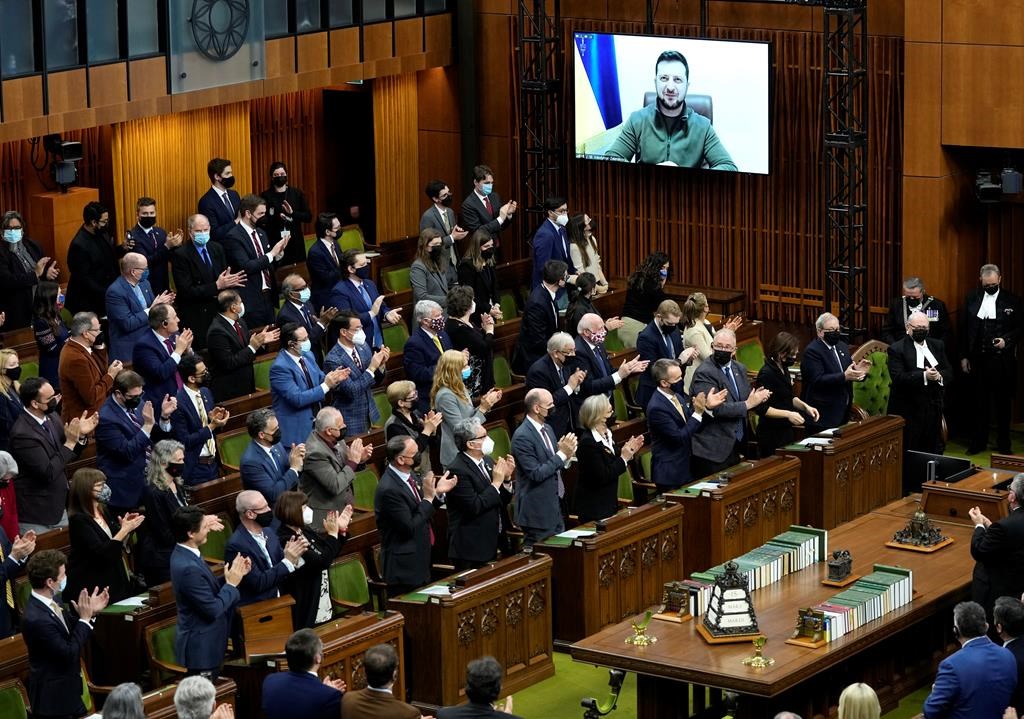
The views, opinions and positions expressed by columnists and contributors are the author’s alone. They do not inherently or expressly reflect the views, opinions and/or positions of our publication.

This content is restricted to subscribers
The views, opinions and positions expressed by columnists and contributors are the author’s alone. They do not inherently or expressly reflect the views, opinions and/or positions of our publication.

Become a subscriber today!
Register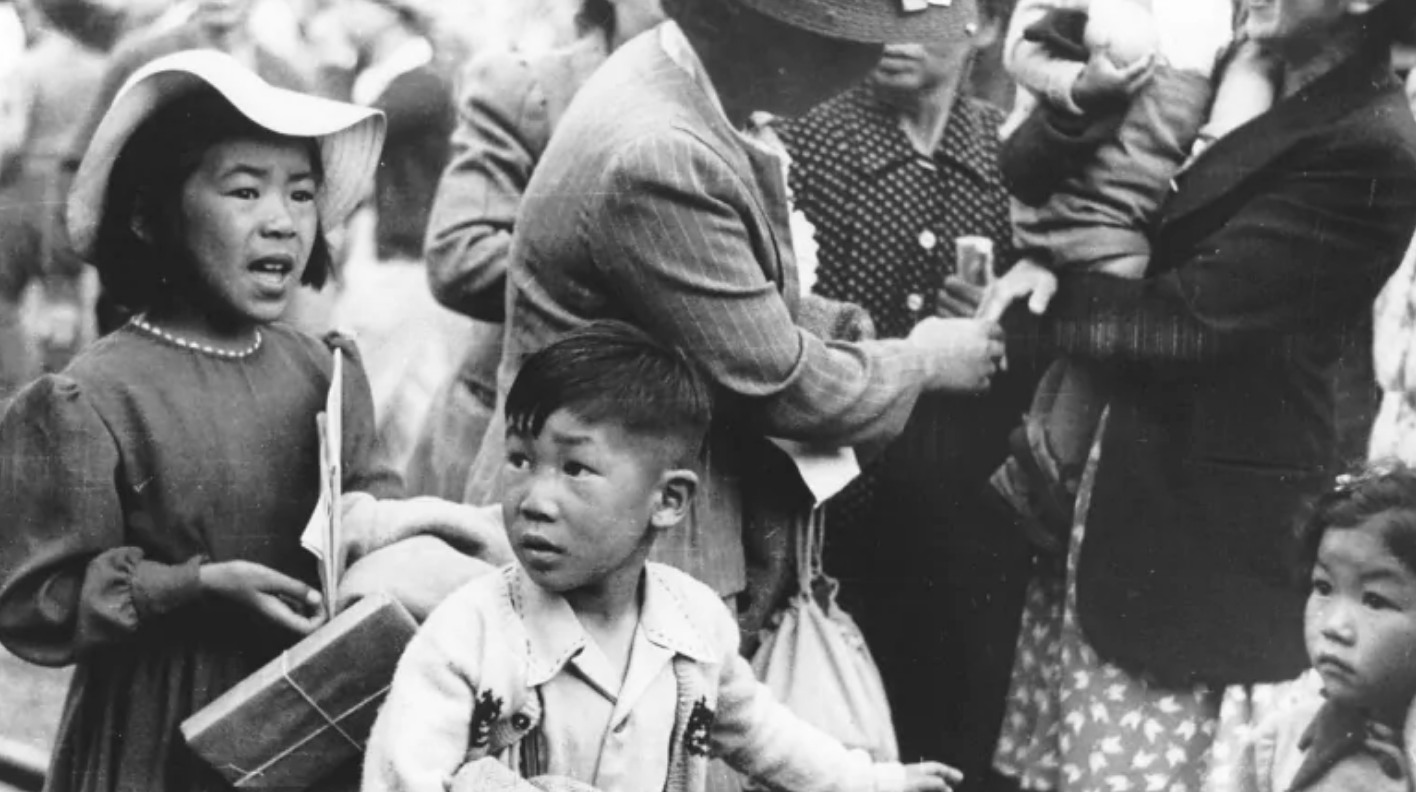
“I know that I speak for Members on all sides of the House today in offering to Japanese Canadians the formal and sincere apology of this Parliament for those past injustices against them, against their families, and against their heritage, and our solemn commitment and undertaking to Canadians of every origin that such violations will never again in this country be countenanced or repeated.”
—part of a speech by Prime Minister Brian Mulroney to the House of Commons in 1988
Vladimir Putin’s brazen war of conquest against Ukraine has conjured a visceral response from many Canadians. But obscured among our support for Ukrainians’ plight stirs a more sinister force: Russophobia. Numerous incidents of harassment against Canadians of Russian descent have been reported over the past fortnight. If the war continues to intensify, so too will torment against Russian Canadians. Keeping in mind the historical injustice of the internment of Japanese Canadians, we must not allow Putin’s despicable war to sow xenophobic division here in Canada, and should take proactive actions to halt such trends.
As a megalomaniac intent on empire-building, Putin has illustrated wanton disregard for national sovereignty and international law. But far worse is his callous indifference to human life, indiscriminately bombing Ukrainian residences simply to propagate terror among the population, an action that undoubtedly constitutes a war crime.
No surprise, then, that Canadians and much of the international community are expressing empathy for Ukrainians, along with outrage at the Russian state for such heinous atrocities.
Unfortunately, anger at Russia’s despot-led government often manifests itself abroad as harassment of the Russian diaspora. Here in Canada, Russian churches have been vandalized, while Russian businesses such as restaurants are targeted with threatening phone calls or adverse online reviews. A teenage hockey player was also allegedly the victim of a racial slur from an opposing player.
It’s worth emphasizing that many Canadians of Russian descent were born here. Of those who emigrated, plenty of them fled repression – either Soviet or Putin’s modern variety. Russo-Canadians are much more likely to have been victims of the Russian state rather than its overseas cheerleaders. The thought of re-victimizing these people is repugnant. And numerous Russian-themed businesses here in Canada have gone out of their way to express support for Ukraine – including actively fundraising – while denouncing Putin.
Attempting to categorize Canadian immigrants and their descendants as having either a “Ukrainian” or “Russian” identity – as if it were a simplistic binary – is often a futile task, as many Canadians share ancestry from both countries. Several of the “Russians” in Canada who have been targeted for abuse are also of Ukrainian lineage. How is harassing them meant to help war-torn families in Kyiv? When we seek convenient scapegoats, we quickly appreciate the world is a complex tapestry. Only one person deserves our scorn for the war, and he certainly doesn’t live in Canada.
Thus far, most incidents of harassment against Russo-Canadians have been typically Canadian: that is, passive-aggressive. Thankfully there have not yet been any reported physical assaults. But if the war escalates – and it almost certainly will – it’s likely that violence will become a weapon brandished by xenophobic Canadians. We may even witness demagogic politicians attempt to exploit the division for their selfish ends.
The Russophobia fomenting over the past two weeks serves as a disturbing reminder of a dark chapter from Canada’s history: the forcible internment of British Columbians of Japanese descent during the Second World War. 22,000 such people – most of whom were born in Canada and thus Canadian citizens – were detained and relocated to British Columbia’s Interior, accused of being a threat to national security. In Vancouver, 8,000 women and children were temporarily sent to live in livestock pens – among animal feces and bugs, and without toilets – before being relocated away from the Pacific coast. Men were compelled to labour in road camps. Property and possessions of these Japanese Canadians were sold without their consent, purportedly to pay for the costs of internment.
War brings out the worst in human beings. Our nature is instinctively tribal, and during difficult times, good-versus-evil caricatures of “others” are often readily accepted without adequate scrutiny or critical thinking. This, of course, plays into Putin’s attempts to sow social division in the West, every bit as effective as his army of Twitter bots and trolls that aim to ruffle political feathers.
As citizens of a country that has formally embraced multiculturalism, It’s important that Canadians are regularly reminded that an entire ethnicity cannot be “bad” or “good”, as well as of the consequences of demonizing groups of people, especially during wartime. Education is perhaps the best long-term solution, ideally beginning at a young age. British Columbia and Ontario include Japanese Canadian internment in their elementary school curricula, but unfortunately many other provinces – including Alberta – do not.
With a war unfolding abroad and xenophobia against Russian Canadians currently increasing, we also need immediate remedies.
Just as Canada possesses a moral obligation to assist Ukrainians being attacked by a baleful dictator, so too must we protect our fellow Canadians from any harm arising from wartime xenophobia. We shouldn’t merely scold and tut after incidents come to light – instead, we must proactively remind Canadians of the harm caused by racism. The Canadian government should run advertisements stressing the need to be extra kind to Russo-Canadians during this conflict, and that if we turn against each other, Putin ultimately wins.
“We must make these people feel at home among us. We will secure their loyalty by fairness and kindness …”
—part of a speech by Angus MacInnis, Vancouver-Kingsway MP, to the House of Commons in 1941
Resources for learning about the historical internment of Japanese Canadians:
https://www.youtube.com/watch?v=fxVZtQULIMQ
https://www.youtube.com/watch?v=xUGM7EfwwU8
https://www.youtube.com/watch?v=C8TQTuMqM9g
Obasan (by Joy Kogawa; Penguin Random House Canada, 2017 [originally published in 1981])
The Three Pleasures (by Terry Watada; Anvil Press, 2017)
Naomi’s Road (by Joy Kogawa, illustrated by Ruth Ohi; Fitzhenry & Whiteside, 2005 [originally published in 1986])
On Being Yukiko (by Jeff Chiba Stearns and Lillian Michiko Blakey; Sandhill Book Marketing Ltd., 2021)
Stealing Home (by J. Torres, illustrated by David Namisato; Kids Can Press, 2021)
Toshiko (by Michael Kluckner; Midtown Press, 2015)
The views, opinions and positions expressed by columnists and contributors are the author’s alone. They do not inherently or expressly reflect the views, opinions and/or positions of our publication.
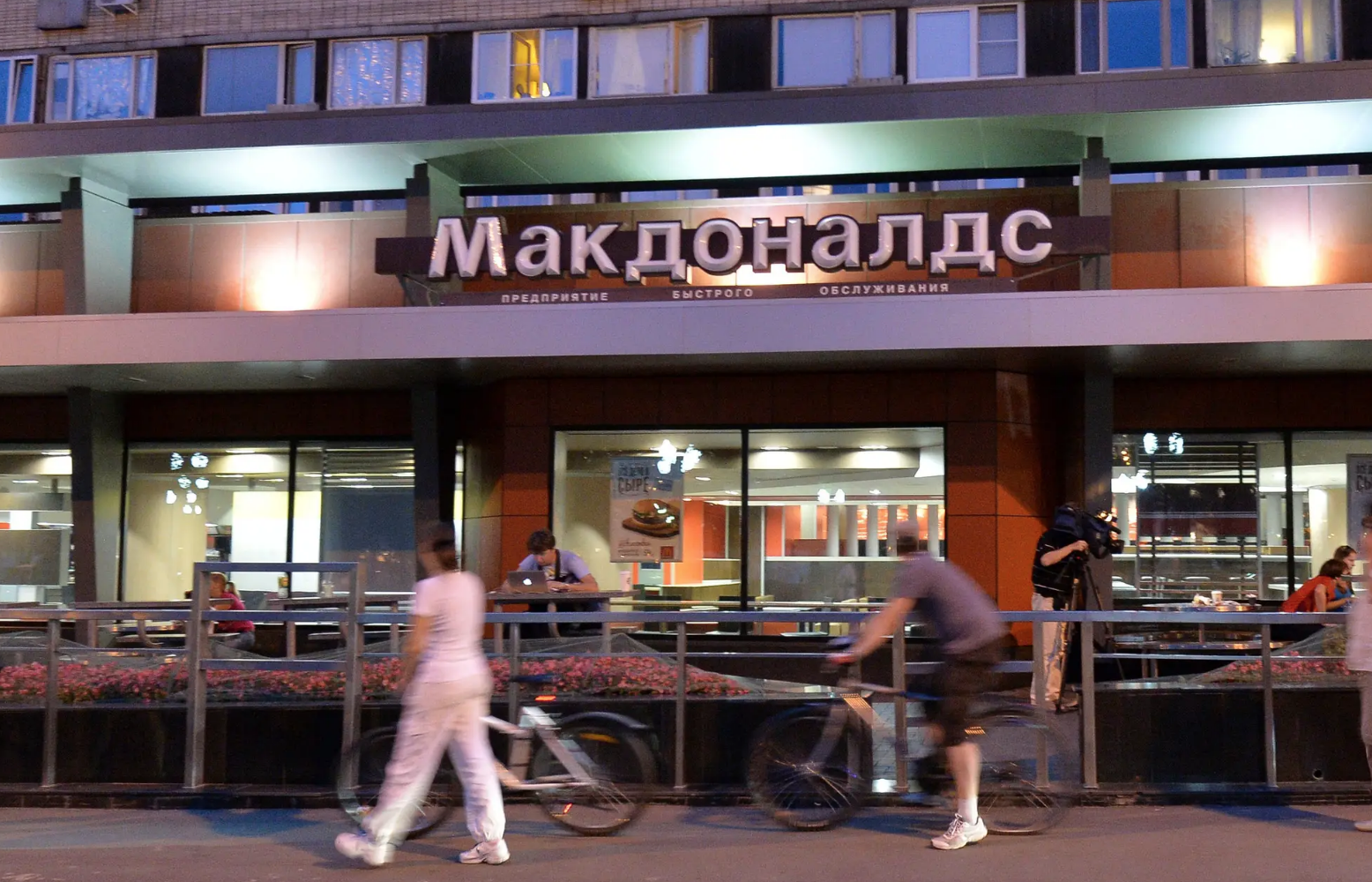
Several major U.S. corporations announced on Tuesday they would be temporarily closing locations and suspending operations in Russia. The list included Coca-Cola, Starbucks and McDonald’s.
One name on this list particularly stood out for its historical significance: McDonald’s.
The Soviet Union granted permission to McDonald’s in 1988 to open a franchise in Moscow. This was the culmination of 14 years of effort and dogged determination by the American-born Canadian businessman George Cohon.
His family had survived anti-semitic pogroms in Ukraine. They moved to Chicago’s Hyde Park area, where Cohon was born and raised. He worked as a corporate lawyer in his father’s Chicago firm, but moved to Toronto after becoming the licensee of McDonald’s Corporation for Eastern Canada.
That fell into his lap by chance, as it happens. According to his 1999 autobiography To Russia With Fries, the client he represented for the Canadian license passed on this deal. Cohon jumped in and made the arrangement with McDonald’s founder Ray Kroc. His first location opened in London, Ont. on Nov. 11, 1968.
Amusingly, Kroc offered to purchase the Canadian license from Cohon for $1 million that day. He opted against it, and gradually became chairman, president and CEO of McDonald’s Restaurants of Canada. The U.S. parent company ultimately bought him out with stock in 1971 – which has only increased in value – and he presided over 200 McDonald’s locations by 1976.
Cohon’s move into the USSR was a bit serendipitous, too.
A chance meeting with some Soviet delegates at the 1976 Olympics in Montreal led him to take them to a McDonald’s location. They were impressed, and he decided to find a way to bring the famous golden arches under the Iron Curtain. It took many years, and plenty of difficult negotiations, but then-Soviet Premier Mikhail Gorbachev agreed as a means of promoting the twin concepts of perestroika (reconstruction) and glasnost (openness, transparency).
Arlington Heights Daily Herald business writer Dan Culloton had a nice description of Cohon when his book tour reached a Borders Books & Music in Oak Brook, Ill. He said the Canadian CEO “seems affable and jocular enough to charm Karl Marx into thinking like a capitalist, and that’s not far from the truth of what he did.”
The first McDonald’s in the Soviet Union opened its doors on Jan. 31, 1990. It was a difficult task, by all accounts. The Cold War was still ongoing, meaning the parent company kept its involvement to a bare minimum. Rubles was the only form of currency that could be used for payment. A meal could cost half a day’s wages on average. Lineups could be hours long. Supply shortages in the Communist country forced McDonald’s to create its own supply chain. Not every Muscovite face was necessarily as open and friendly as Ronald McDonald’s, either.
Regardless, it was an astonishing moment in history. The first Soviet-based McDonald’s was universally seen as a triumphant moment for capitalism and democracy. It was a hopeful sign that the Soviets were beginning to see the light at the end of the tunnel, and would reject Marxism-Leninism before long.
There was also plenty of euphoria on the streets. Ksenia Oskina, one of the first 30,000 customers, told the Washington Post on Jan. 31, 2020 that she saved her Big Mac carton and drinking cup to show her co-workers. “I used that Big Mac box for a long time,” she said, “and put my sandwich in there instead of a lunchbox. I’d clean it, dry it on the heater and then use it again.”
As for Cohon, who served as senior chairman of what became McDonald’s Russia, he was named “Capitalisr Hero of Labor” by Pravda in 1990. Quite an accomplishment, all things considered.
How things have changed in Vladimir Putin’s Russia.
Democracy, liberty and freedom remain foreign concepts. The U.S. think tank Freedom House, for instance, has given Russia an abysmal ranking of 20 out of 100 the past two years. This is due to awful numbers for Political Rights (5/40) and Civil Liberties (15/60). It also ranks low on Global Freedom (19/100) and Internet Freedom (30/100). Hence, Russia is regarded as being “not free.”
In case you’re wondering about Canada’s score the past two years as a point of comparison, Freedom House puts us at 98 out of 100.
What about capitalism? It exists in Russia, but more on the basis of what we would call “state capitalism” or “crony capitalism.” There is private enterprise in fields such as agriculture, mining and retail trade, but the state (along with several oligarchs) controls most major corporations and the levers of power. A free market economy, it isn’t.
With Russia’s invasion of Ukraine, the world’s governments and businesses have wisely decided to push back in different ways.
McDonald’s employs “62,000 people who have poured their heart and soul into our…brand to serve their communities,” CEO Chris Kempczinski wrote to his employees and franchisees on March 8. “At the same time, our values mean we cannot ignore the needless human suffering unfolding in Ukraine. Years ago, when confronted with his own difficult decision, Fred Turner explained his approach quite simply: ‘Do the right thing.’ That philosophy is enshrined as one of our five guiding values, and there are countless examples over the years of McDonald’s Corporation living up to Fred’s simple ideal. Today, is also one of those days.”
That’s one good way to take a McBite out of Putin’s Russia.
Michael Taube, a long-time newspaper columnist and political commentator, was a speechwriter for former Canadian prime minister Stephen Harper.
The views, opinions and positions expressed by columnists and contributors are the author’s alone. They do not inherently or expressly reflect the views, opinions and/or positions of our publication.
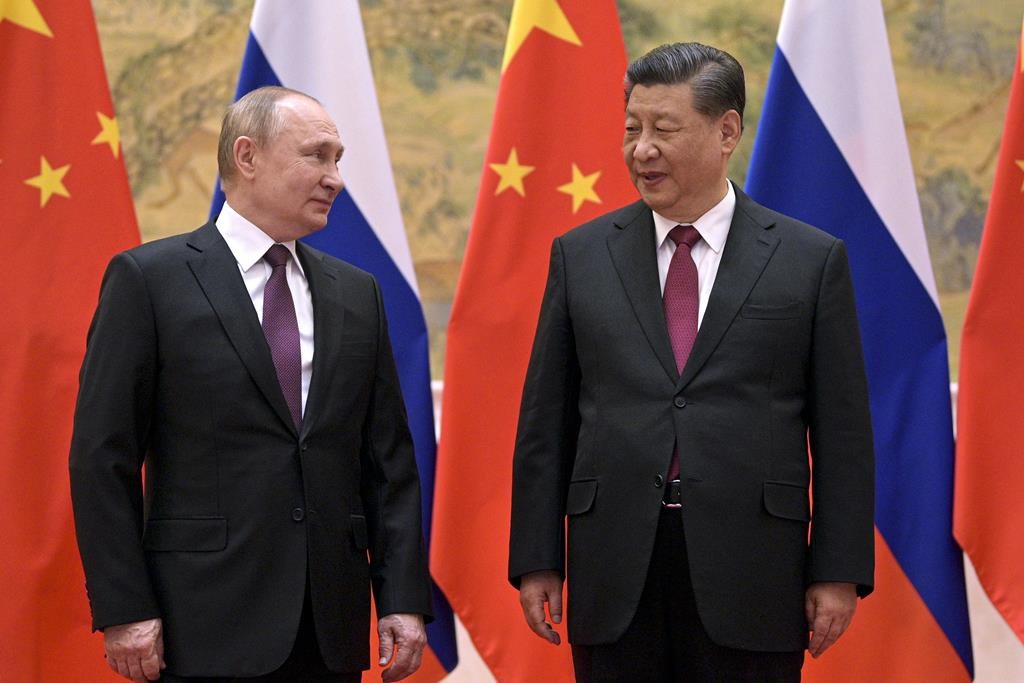
A long time ago, in an adolescence far, far away, someone I knew adopted the approach that their parents should not ask questions to which they did not wish to know the answer. Which is why I long resisted reading James Burnham’s “Suicide of the West” in case it told me we were not merely doomed, but doing it to ourselves.
I could no longer avoid the issue after reading Conrad Black’s pointed observation in the Feb. 26 National Post that “The great illustrative event this week was U.S. climate change czar John Kerry, one of the most unwaveringly fatuous of America’s many public officious fools, complained that the military subjugation of the autonomous nation of Ukraine was a distraction from the existential crisis of climate change. The existential crisis isn’t posed by the climate, but by people like him. If we are determined as a civilization to commit suicide, we should try for death with dignity, and John Kerry is the last person capable of providing that.”
It turn out Burnham’s book is mostly not available in stores, including online, which is revealing. However it also turns out to come free on Audible, which is surprising. So I plunged cheerlessly in, and was treated to something that gives academic prose a bad name, full of long lists of famous persons who are liberals, or were in 1964. I am not sure whether to be smug or dismayed that I actually recognized more than half of them. But I am a historian, and when it comes to the decline and fall of civilizations there’s some value in having an idea who Jacob Javits was, and Commodus.
Actually being a historian is incredibly useful in all kinds of areas. I don’t mean “a person with a PhD in history” which sometimes appears to me to be an impediment, though I have one. I mean a person who takes an interest in the past as the best, if often infuriatingly insufficient, guide to the future.
Frankly I don’t think most of the pseudointellectuals currently pontificating about Putin’s aims have the foggiest notion who the Slavophiles were, or the Narodniki, and I don’t think they ever heard of Aleksandr I’s “Holy Alliance”. In fact I doubt they ever heard of Aleksandr I. And any number of people mentioned this 5,000-word joint communique by Putin and Xi on Feb. 4 but how many of them linked to it or quoted a word of it?
One commentator I respect wrote recently of Ukraine “we won’t solve today’s problem by trying to make it fit into the framework of yesterday’s wars.” To which I respond “What else have you got?” And add that one thing you learn from studying yesterday’s wars is what people did about the fact that they were not entirely like their predecessors because history never repeats itself verbatim. BOOM.
Here’s another one. Based on the past record, if people say things you disagree with and do things you disagree with, they probably think things you disagree with. It’s amazing that half a century after head-slapping that we should have read Mein Kampf (which sits on my shelf near Stalin’s Foundations of Leninism), people were still saying oh oh don’t listen to Putin it’s disinformation. So in addition to facing up to Burnham, I also finally ordered a copy of the ghastly trilogy commonly called “Xi Jinping Thought”.
I had hesitated partly because I didn’t really want to give him my money. But since everything is already made in China, speaking of boycotts to consider once we get Russia out of SWIFT, it won’t make much difference. I also dreaded a soporific parade of the “four tests” and “four risks” and “Three Represents” and “one central task, two basic points” and “Four Cardinal Principles” and he disappointed me by not disappointing me. But just as people were going oh oh don’t listen to Putin he’s engaged in disinformation and I said no, he’s telling you what he thinks, something I also said of Brezhnev back when he was still an animated corpse, we need to try to gulp down some “Xi who must be obeyed” (a line not original with me but so brilliant I swiped it, though perhaps funnier if you’re also a person who believes in reading classic novels including ones that aren’t highbrow).
Because “Ideas have consequences”, to quote the title of a superb book by Richard Weaver that once you read the title the rest is intuitively obvious. But not always in a fun way.
Another commentator, in a mostly sensible look at the proverbial “wake-up call” of the Ukraine invasion also on Feb. 26, ended “Putin wouldn’t be taking this gamble if he didn’t think the West was too sickly to stop him. To say it’s a wake-up call doesn’t begin to get there. It’s a screaming siren warning us that our very values and the world we thought we had are in real danger.”
Which brings me back not just to Xi but to Burnham. Because what if it’s worse than he thinks? What if our values are what created the danger? What if Putin is right that we are decadent? He wouldn’t be the first to think so. Or the last. What if the wholesale embrace of relativism and hedonism really is a big mistake?
I know, I know. You don’t want to hear the answer. But sometimes you need to know what’s going on. And we are in one of those situations.
The views, opinions and positions expressed by columnists and contributors are the author’s alone. They do not inherently or expressly reflect the views, opinions and/or positions of our publication.

Become a subscriber today!
Register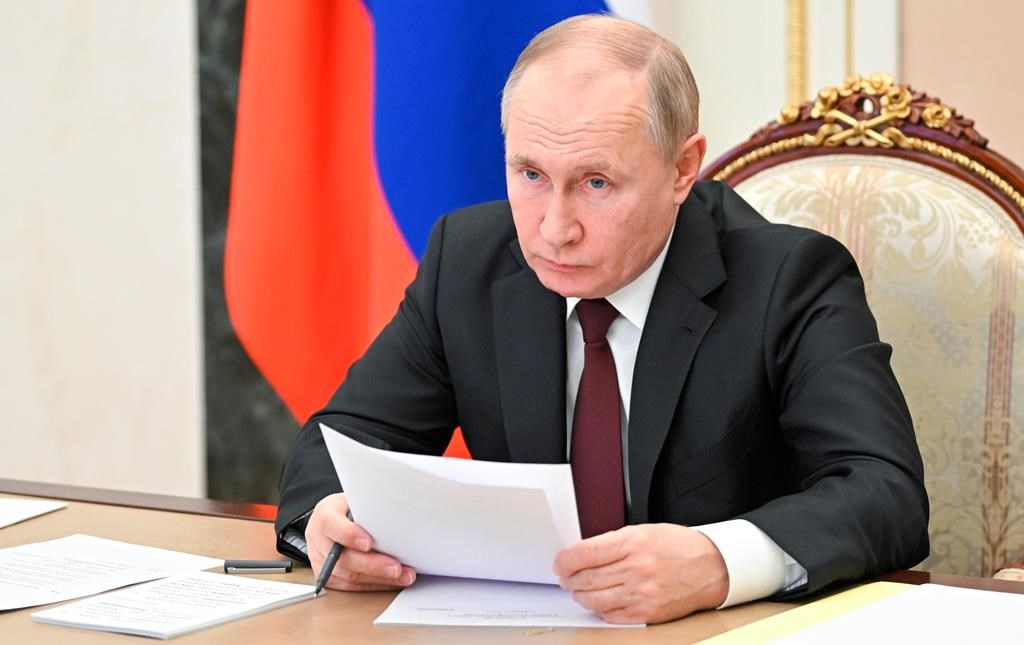
The Russia-Ukraine conflict is teetering on the brink of a full-scale war. That’s what Russian President Vladimir Putin has long been angling for. It’s part of the tyrant’s master plan to rebuild the old Soviet Union piece by piece – something he hasn’t said out loud, but doesn’t take too much effort to figure out.
How did we get to this point? That’s an interesting story in itself.
Putin’s rise to power has been nothing short of miraculous. He was born a commoner with no political connections or light ties to powerful Communist leaders. His mother was a factory worker, and his father was a conscript in the old Soviet Navy, or Red Fleet, who worked aboard submarines. He studied German in school (he speaks it fluently) and graduated law at Leningrad State University (now Saint Petersburg State University) in 1975.
The 69-year-old Putin had a lengthy career in the KGB as a foreign intelligence officer. He worked there for 16 years, rising to the rank of lieutenant colonel. He left in 1991 to go work for Leningrad mayor Anatoly Sobchak, and started to build up an impressive portfolio of political allies. He became the first deputy chairman of the Government of Saint Petersburg in 1994, and organized the Saint Petersburg branch of the Our Home–Russia political party, founded by then-prime minister Viktor Chernomyrdin. He ran political campaigns, built a strong relationship with then-Russian president Boris Yeltsin, became first deputy chief of the presidential staff in 1997 and director of the Federal Security Service (FSB), the KGB’s successor, the following year.
Yeltsin nominated Putin as prime minister in 1999, and announced he wanted him to become his successor. The next day, Putin announced his own candidacy for the presidency and aligned himself with the Unity Party. They won the second-largest percentage in the Duma, built a coalition with other political parties, and supported Putin. When Yeltsin unexpectedly stepped down on Dec. 31, 1999, Putin became acting president. He won the first round of presidential elections with 53 percent of the vote in March 2000, and took power.
Putin served as president between 1999-2008, heading Unity and later the United Russia party. Barred from running for a third presidential term due to the Russian constitution, he appointed Dmitry Medvedev as his successor and took over the latter’s role as prime minister (2008-2012).
Only the most oblivious of observers wouldn’t have realized who was still in charge.
After four years, Medvedev recommended Putin run for the All-Russia People’s Front, the political coalition that replaced United Russia, as its presidential candidate. He admitted a deal had been cut years ago by both men to switch places. As Time’s Simon Shuster wrote on Mar. 3, 2012, it was a “maneuver that was dubbed by Russian pundits as the rokirovka, or castling, a move in the game of chess in which the king and the rook switch places to protect the king.”
Putin was the real chess master, of course. This political maneuver helped him gain a stranglehold over the Russian presidency, which he’s held since 2012. It also allowed him to shift his loyalists into different strategic posts.
Here’s a simple example. Medvedev was nominated by Putin to become prime minister. He served in this role from 2012-2020, and was replaced by Mikhail Mishustin, former director of the Federal Taxation Service, who was also nominated by Putin. Medvedev has held the prominent role of deputy chairman of the Security Council of the Russian Federation ever since. Would you like to take a wild guess who nominated him?
Through it all, Putin transformed himself into a powerful, populist leader in many Russian eyes. He’s seen as a throwback to the old Communists who ruled the Soviet Union with an iron fist. His tough talk and no-nonsense attitude appeals to Russians looking for someone to idolize and admire, too.
He certainly knows how to play this up. When asked by media outlets in June 2019 who he felt Russia’s national heroes were, he picked two beloved names: poet Alexander Pushkin, and Emperor Peter the Great because “he founded the city where I was born, he was a great reformer who reshaped our country.” The latter historical figure, in fact, is the one he’s most often compared to. He clearly wants to be a 21st century Peter the Great who leads his country back to power and prominence.
Putin’s promised land would be a return of the old Soviet Union in the guise of modern Russia. That’s why he invaded Georgia in support of separatist governments in South Ossetia and Abkhazia. He backed Moldova’s breakaway region of Transnistria. He seized Crimea from Ukraine, although they were willing participants. Now, he’s going for the crown jewel by ordering troops into Ukraine’s separatist territories of Donetsk and Luhansk and beating the war drums for a full-scale invasion.
Western democracies see through Putin’s bravado. They know that he’s a real danger to the cherished principles of democracy, liberty and freedom. Countries like the U.S., Germany, United Kingdom and other NATO allies will oppose Russia. First with economic sanctions, and then with force if they invade Ukraine.
They see through this tyrant. They realize he has to be stopped. And they know exactly what Putin’s end game is, and has always been.
Michael Taube, a long-time newspaper columnist and political commentator, was a speechwriter for former Canadian prime minister Stephen Harper
The views, opinions and positions expressed by columnists and contributors are the author’s alone. They do not inherently or expressly reflect the views, opinions and/or positions of our publication.
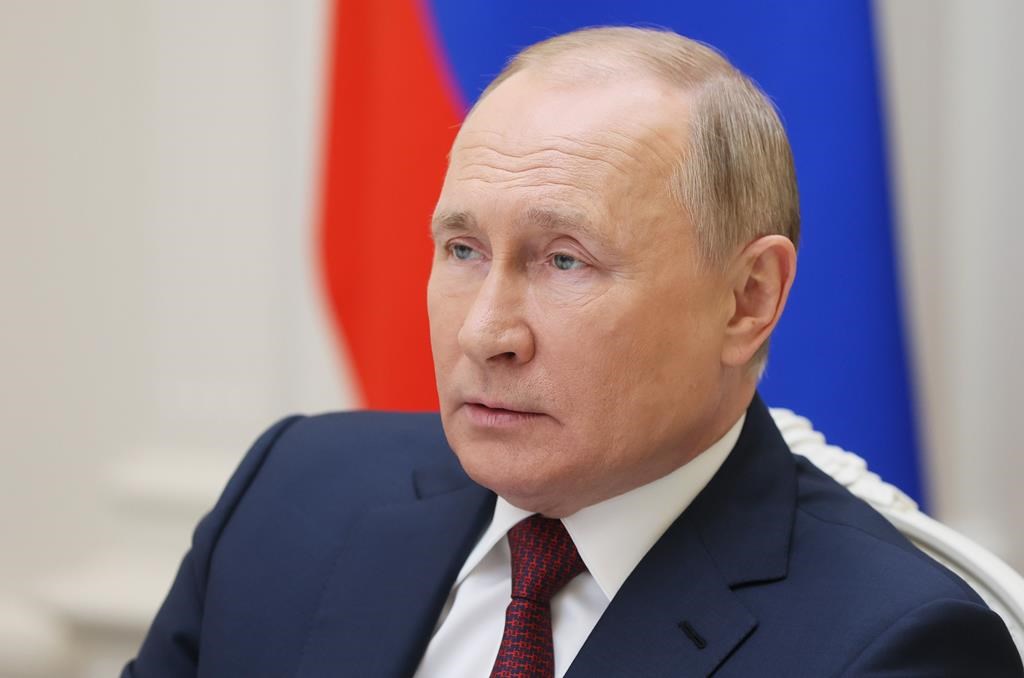
This content is restricted to subscribers
The views, opinions and positions expressed by columnists and contributors are the author’s alone. They do not inherently or expressly reflect the views, opinions and/or positions of our publication.